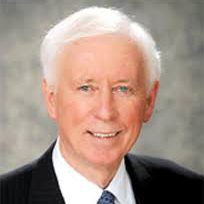It’s Stories That Move Us
What do I have to do to get politicians and those in government to listen to me?” It was the plaintive question familiar to those of us who are active in trying to improve the health care systems in which we as physicians provide care to patients.
The questioner was participating in a conference I attended in Taiwan that looked at ways physicians can influence government decisions in the area of public health. Inherent in the question was the frustration that comes when it seems that suggestions about how health care can be improved fall on deaf ears.
Things that seem obvious to us, as physicians who see patients and think we understand what is needed do not always find a sympathetic ear among those, not working in the health care world, who have the power to effect change.
There are many reasons for this difficulty. Frequently those in government do not understand how health care is delivered. In addition health care issues must compete for attention with other priorities of society such as roads, schools, defense, etc. And all too frequently, for every suggestion provided by one group there are contrary competing recommendations from others. Finally, most actions by government do not occur immediately or rapidly, but slowly over a long period of time.
As physicians dedicated to science we are convinced of the importance of evidence – of having data to make good decisions. When we make decisions about how to treat patients we want to be assured that what we are doing is backed up by science. Therefore it is difficult to understand why in the political arena just having the facts is so often not enough.
The reality of course is that it is stories about real people that make a difference. I was reminded of that in remarks by Robin Coupland, FRCP, of the International Committee of the Red Cross (ICRC). He was speaking about violence in the health sector in areas of armed conflict, and how one could convince groups on different sides (government and rebel) to protect heath professionals, patients and healthcare facilities in that environment. What he said is wisdom applicable any area of endeavor.
To make change requires four things.
- Make people concerned
- Have images
- Be credible
- Have data
I think it is not unintentional that in this short list evidence and facts although essential are at the end.
My message to the questioner who wanted to know how to “get someone to listen” is to remember that usually in that setting the physician has the most expertise and should see his or her role as educator, as helping those in government understand.
In addition given how slowly the wheels of government turn, one needs not only to preserve a sense of urgency about what needs to be done, but to couple that with patience and a dogged determination to persist.
Finally and most important, remember that having the facts and being credible is essential to convince. But it is also critical to success to get people’s attention, to make them concerned. And using stories and images does that most effectively.
Facts are important – essential.
But it is stories that move us.

